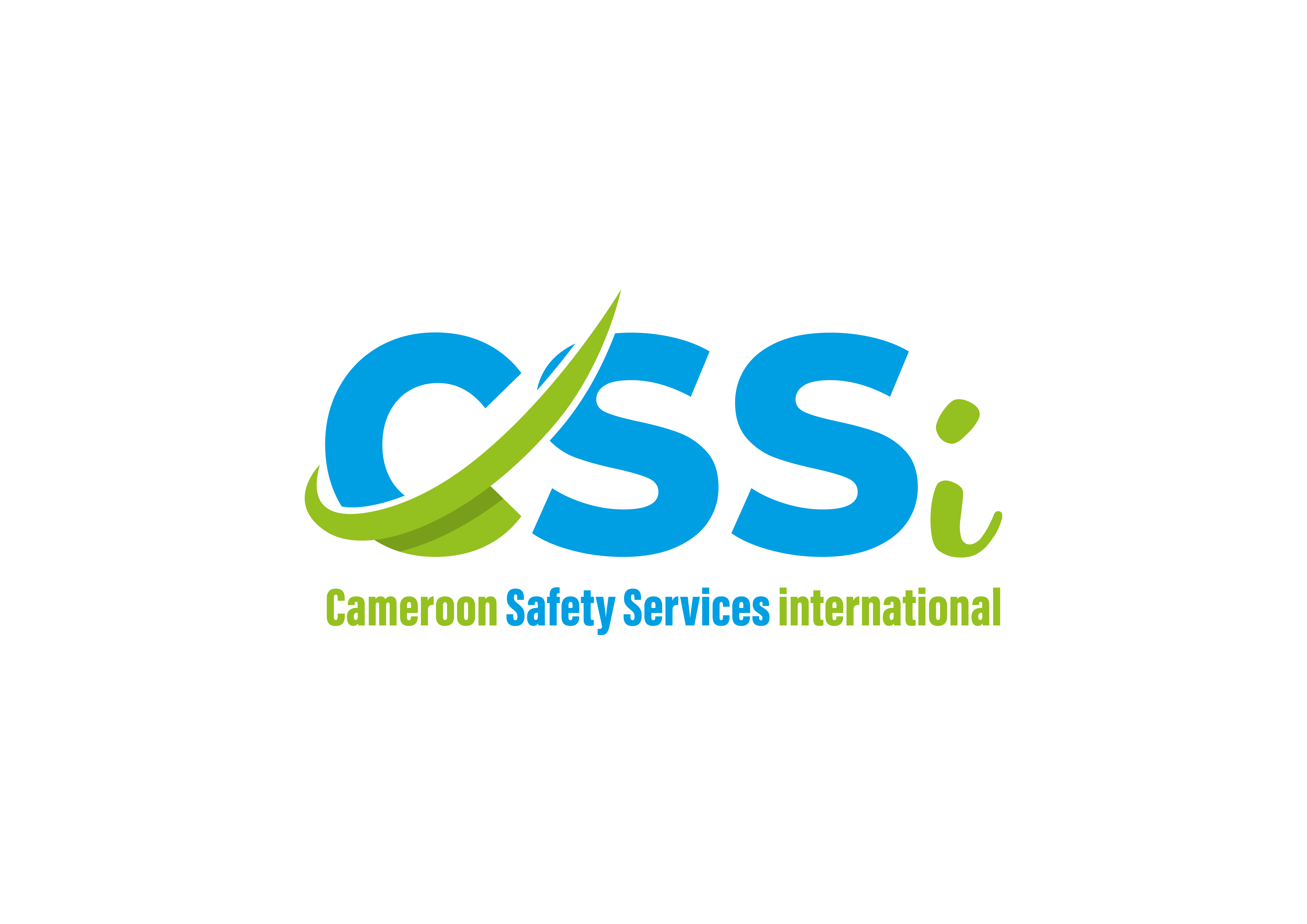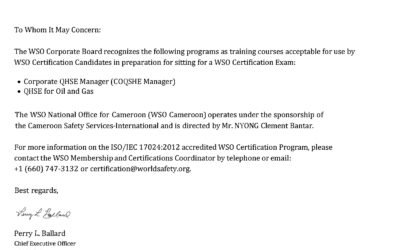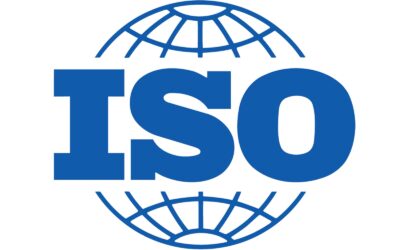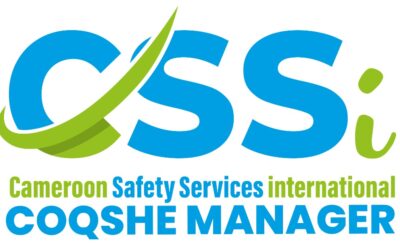Our Blog
The Founder of CSS-International speaks during TOE@60 celebration at UBA Head Quater, Marina, Lagos.
What is a Quality Management System base on ISO 9001 Standard?
ISO 9001 Quality Management
In our current globalized economy and complex supply chains, John Ruskin’s adage, “Quality is never an accident. It is always the result of intelligent effort” is even more relevant today than it was on the day he said it. Organizations cannot rely on chance and hope to deliver quality products and services; instead, they must establish a consistent and planned approach for managing quality. With over one million certified organizations worldwide, ISO 9001 remains the world’s most well-known standard, which provides organizations with a structured approach for quality management and helps them consistently provide products and services that meet and, where possible, exceed customer requirements.
What is ISO 9001?
Published initially in 1987, ISO 9001 is the first international management system standard (MSS) that specifies the requirements for the establishment, implementation, operation, maintenance, and continual improvement of a quality management system (QMS) in an organization.
ISO 9001 is based on seven quality management principles and it aims to help organizations be more efficient and improve customer satisfaction. A common misconception is that ISO 9001 is intended for larger companies and manufacturers. However, the requirements of ISO 9001 are generic and applicable to any organization, regardless of its type, size, or the products or services it provides.
Although ISO 9001 was initially published in 1987, it has undergone several revisions in order to keep up with good practices and trends in the business world and ensure continuous suitability. The latest (5th) edition of the standard is titled ISO 9001:2015 Quality Management Systems – Requirements. After running a survey with over 8,000 respondents, in May 2021, the ISO subcommittee for quality systems (ISO/TC 176/SC 2) confirmed that ISO 9001:2015 is still relevant and recommended that it remains unchanged.

Figure 1: ISO 9001 publication and revision timeline
Why is ISO 9001 important for organizations?
Ever since its initial publication, ISO 9001 has been the most recognized and widely used management system standard. A QMS based on ISO 9001 enables organizations to ensure success in the long term. In addition, a certified QMS provides additional assurance to customers and business associates, which further improves the business of an organization.
Even though ISO 9001 sets the minimum requirements that must be met, it still allows organizations to tailor the QMS to their needs. Thus, organizations should determine their overall context in order to identify issues, constraints, and opportunities that are specific to their context. In addition, they should set objectives and establish processes which contribute to the achievement of those objectives.
A distinct feature of a QMS based on ISO 9001 is that it puts customers first. “Meeting customers’ needs and exceeding their expectations” is engraved in the quality management principles, and is implied continuously on the requirements stated in clauses 4 to 10 of the standard. As such, organizations that implement and establish a QMS based on ISO 9001 will maintain the focus on their customers by continuously identifying their needs and requirements, obtaining feedback from them, and continually improving their products and services to fulfill their needs. This focus on customer satisfaction is one of the key factors that have allowed the ISO 9001 to achieve the landmark status.
Like most of the management system standards, ISO 9001 is structured according to the High-Level Structure (HLS) and shares the common terms and core definitions. This alignment enables an easier integration with other management systems based on standards such as ISO 14001, ISO/IEC 20000-1, ISO/IEC 27001, ISO 22301, etc. Apart from ensuring consistency and reducing costs, integrating several management systems can improve the organization’s ability to successfully address other organizational commitments.
Benefits of ISO 9001 for organizations

Figure 2: Benefits of implementing a QMS based on ISO 9001
Why should you attend one of our ISO 9001 training courses?
While ISO 9001 can be used by organizations to obtain many benefits, many organizations are unable to fully realize the benefits of a QMS implementation. There are different factors which contribute to the inability to integrate the QMS into the organization’s processes. Such factors include, but are not limited to:
- The perception of the QMS as a system of documentation.
- The inability to identify nonconformities.
- The inability to ensure continual improvement.
PECB’s training courses, both lead implementer or lead auditor, are tailored to overcome such challenges.
Globally recognized, PECB certifications demonstrate an individual’s professional capabilities to contribute in an organization’s QMS, as an auditor, implementer, or QMS implementation team member.
Obtaining a certificate in ISO 9001:
- Distinguishes you from other quality management consultants/auditors
- Demonstrates your awareness and knowledge of an internationally recognized standard for the management of quality in organizations
- Demonstrates that you have the necessary competencies to guide and support organizations through the implementation and management of a QMS (PECB Certified ISO 9001 Lead Implementer)
- Demonstrates that you have the necessary competencies to assess the conformity of a QMS against the requirements of ISO 9001 and the organization’s own requirements (PECB ISO 9001 Lead Auditor)
- Qualifies you to conduct third-party certification audits on behalf of conformity assessment bodies (PECB ISO 9001 Lead Auditor)
- Provides you with opportunities to further improve your career in quality management, either as an auditor, implementer, or a member of auditing/implementation team.
QHSE Job opportunity
SGS is hiring an HSE Country Supervisor . Do you know someone who could fit the profile described below?
JOB OFFER
Job opening: HSE Country Supervisor
Number of position : 01
Type of contract: Permanent
Location : Douala – Cameroon
JOB DESCRIPTION:
o Identify, plan, recommand and complete HSE programs following the Global HSE strategy and applicable business strategies.
WHAT ARE WE LOOKING FOR?
o Minimum of 7 years worth of HSE experience or related fields
o Master Degree in QHSE :
o Experience and good knowledge in change management
o Good exposure in Environment and industrial hygiene
o Fluency in French and English.
Apply by sending your updated resume (PDF version) no later than 20/01/2023 at 15:00 via email adress recrutements.sgscm@sgs.com with the subject line: “YOUR NAME_THE POSITION_2023”.
SGS #recrute un HSE Country Supervisor. Connaissez-vous quelqu’un qui pourrait correspondre au profil décrit ci-dessous ?
OFFRE D’EMPLOI
Poste à pourvoir : HSE Country Supervisor
Nombre de personnes : 01
Type de contrat : Permanent
Localisation géographique : Douala – Cameroun
MISSIONS
o Identifier, planifier, recommander et compléter les programmes HSE suivant la stratégie HSE globale et les stratégies commerciales applicables.
COMPETENCES REQUISES /SAVOIRS-FAIRE
o Minimum de 7 ans d’expérience en SSE ou dans des domaines connexes
o Master en QHSE
o Expérience et bonnes connaissances en gestion du changement
o Maîtrise du Français et de l’Anglais
Postulez en envoyant votre CV actualisé (versionPDF) au plus tard le 20/01/2023 à 15h00 via l’adresse recrutements.sgscm@sgs.com avec pour objet : « VOTRE NOM_LE POSTE_2023 ».
COQSHE,new international QHSE Training and Certification program,
We are glad to inform the general public that Corporate COQSHE Manager (COQSHE Manager) Certification is a more integrated QHSE program and professional training base on ISO 45001, ISO 9001 and ISO 14001 standards and best practices.The course is a new international QHSE Program, developed to respond to immediate company demand for QHSE Career beginners nationally and internationally.
Developed from a collection of 30 years experience in Multinational companies and from the exploration of trend in the competency gap of QHSE professional during auditing of QHSE management system administration.The program surpasses the theoretical academic teachings and focus on a professional approach with practical skill acquisition and using the latest professional training methodology.
This program would take you through to become a QHSE Manager in just 6 months for beginners and 3 Months for a 2 year old field professional QHSE.
Online pre-registration
Fill this form if you are ready to take a COQSHE training and certification
ISO Management systems
ISO is an acronym of the International Organization for Standardization which is an independent, non-governmental, international organization that creates standards to ensure the quality, safety, and efficiency of products, services, and systems. In this article, we will talk about ISO 9001, ISO 45001, ISO 14001, and their benefits.At date ISO has published 22000 plus standards.In this article we focus on 3 standards ISO 9001, ISO 45001, ISO 14001.
ISO 9001
ISO 9001 was first produced in 1987 by the International Organization for Standardization (ISO), an international agency composed of national standards bodies that have more than 160 countries. The present version of ISO 9001 was published in 2015.
WHAT ARE THE BENEFITS OF ISO 9001?
ISO 9001 prevents problems from reoccurring. Most often, companies redo the same mistakes because they lack a system to record and correct problems as they arise. ISO 9001 requires you to maintain careful records of problems and seek out their root causes and come up with solutions.
ISO 9001, tells you to identify potential risks to your business on time and control them in an efficient way. This will lead you to lesser surprises, effective decision-making, improved planning, and better relationships with suppliers, clients, and employees.
How many times have you seen companies encourage their ISO certification in advertising on their website, TV, and on banners outside their roadside side? ISO 9001 can support your marketing and help increase your sales. Most large companies require their suppliers to be ISO 9001 certified.
One of the most important aspects of ISO 9001 tracking customer satisfaction and responding to any issues raised. Most Companies that maintain ISO 9001 certification prove that they take every issue seriously.
Employees enjoy greater job satisfaction and feel more secure about their jobs in a company where processes are well-defined and clearly managed.
ISO 45001
It is the world’s international standard for occupational health and safety, created to protect employees and visitors from work-related diseases and accidents. The main goal of ISO 45001 is to help businesses or companies provide a safe working space for their employees and everyone who visits the workplace.
WHAT ARE THE BENEFITS OF ISO 45001?
The most important advantage of ISO 45001 is the ability to reduce workplace illnesses and accidents. The ISO 45001 standard gives your organization the tools to prevent accidents and save lives.
ISO 45001 gives your people confidence in your straight to maintain a safe workspace. This makes them want to do business with you.
Employers who implement ISO 45001 management systems enjoy lower expenses, premiums, and even worker payments.
By identifying potential risks, workers are also able to uncover opportunities to increase productivity and safety.
ISO 45001 standard is still new so, being among the first companies to gain compliance with the new standard is a way for your company to be different from others.
Employee involvement is a key element in any successful safety business. The ISO 45001 standard offers ways to promote consultation and involvement.
The ISO 45001 standard is a widely known international symbol of safety excellence. your organizations can show that they are following health and safety best practices by using ISO 45001
ISO 14001
ISO 14001 is an international standard that sets out the requirements for an environmental management system. It helps organizations improve their environmental performance through the more structured use of resources and reduction of waste, gaining a competitive advantage and the trust of stakeholders.
WHAT ARE THE BENEFITS OF ISO 14001
ISO 14001 improves your image and credibility. When you assure customers that you have the commitment to show management of your environmental impacts, you boost your image and market share by maintaining a good public image
ISO 14001 helps organizations achieve the intended outcomes of their environmental management system, which provide value for the environment, the organization, and other interested parties.
One of the most important advantages that can be derived from implementing ISO 14001 in your organization is to provide you with a framework for monitoring, identifying, and complying with the environmental requirements that apply to your processes. Additionally, implementing ISO 14001 will tell people that you care about the environment.
it is important to be sure you are working with accurate data, which is a key element of the SO 14001 standard. Working with accurate data increases the chances that you will be successful by tracking the improvement through accurate data collection
ISO 14001 can help your organization to move from small improvements toward bigger and greater improvements in your organizational processes. Through these systematic procedures, you can build your public image but continuing to do this can help your employees find better ways to reduce your environmental impact and save time and resources when they improve the procedures.
Given a choice between working for a company that shows concern, care, and love for the environment around it and one that does not, most workers would prefer the first company. It is always easier and cheap to retain workers than it is to recruit and train new workers. ISO 14001 can increase employee retention and focus.
What is a COQSHE manager and QHSE management system can do for a Company.
Health and safety management is a phenomenon that started at the time of the industrial revolution in U S. During this period, the industry went from production with hands to production with heavy machinery, chemical manufacturing, food processing, and textile processing. During this period, the workforce was needed and the workers found themselves in harsh climatic conditions. There were no rules to protect the workers. After some incidents, the US government developed some agencies to improve labor safety. It took almost 60 years for Occupational Safety and Health Administration to be created in the US. Corporate Quality, Health, Safety, and Environmental Management System, (COQSHE Manager) is a relatively new international quality, health, and safety management program designed to meet immediate company requirements for quality, health, safety, and environment (QHSE) career beginners on a national and international scale.
Role of a COQSHE Manager in a Company
- The COQSHE manager is in charge of planning, organizing, controlling, maintaining, and improving the company’s progress or success.
- The COQSHE manager is responsible for recording and investigating any disapprobation, and he takes the lead in the starting point and corrective actions in the company.
- The COQSHE manager is responsible for analyzing, collecting, and reporting quality, health, safety, and environmental data to the higher management of the company.
- The COQSHE manager is in charge of the company’s day-to-day operations, which include training, meetings, and so on.
- The COQSHE manager handles all customer objections.
- The COQSHE manager scans to ensure that quality, health, and safety, as well as the environment, are addressed.
- The COQSHE manager ensures a secure working environment for all the workers in the company.
Benefits of a QHSE Management System
QHSE is an acronym for quality, health, safety, and environment management, which is a practice and framework that permits you to analyze and execute practical measures to protect your company, its employees, and customers from health, safety, environmental, and quality affairs.
Some industries that administer QHSE management as a mandatory factor to operate are the construction industry, chemistry and pharmacy, energy supply, automotive, financial and insurance services, healthcare and medical technology, agricultural economics, trade and logistics, industry, transportation, manufacturing, art, entertainment, and recreation, food and feed, metal production and metal construction, public administration, traffic and tourism, and supply and disposal.
Procedures in an organization are organized and brought into a position where each process is determined with the authority assigned to each person. The QHSE management system helps the organization bring clarity to the process and easily track task completion, with individual performance data extracted easily.
QHSE management improves growth. The growth of an organization improves as the structure of the organization improves. As the processes get an authorized person assigned to them, the transparency increases. This will result in better performance from employees, which can directly boost growth.
With a QHSE management system in place and active monitoring assured by the QHSE system, an organization can identify disagreements earlier than they occur or before they make a bigger impact on the business. Identifying disagreements can give the company space to take effective preventive measures. Indirectly, an organization with a QHSE system can stay away from risks to a certain extent.
A QHSE management system enables many features that will lead to improvement. Dashboard facilities, real-time monitoring, and improved system intelligence can boost an organization’s confidence in making decisions based on the data. Data-driven decision-making is better because the agreement level it assures is higher than that of manually operated data assumptions.
The QHSE management system improves communication among people and departments, which promotes the idea of a joint workspace.
A QHSE management system improves the quality of products and services while protecting employees and the environment, which is necessary for business success not only to meet regulatory requirements but also to improve profitability and productivity.
QHSE system management enables businesses to operate within the standards, strategy, policy, and legal framework to create a safe working environment.
The QHSE management system helps the company meet legal requirements. Within each organization, it is important to meet the legal requirements. Although it requires time, effort, and money, it is of vital importance. You will receive an annual notification, which will allow you to always meet the legal requirements.
Subscribe for More Great Articles!







